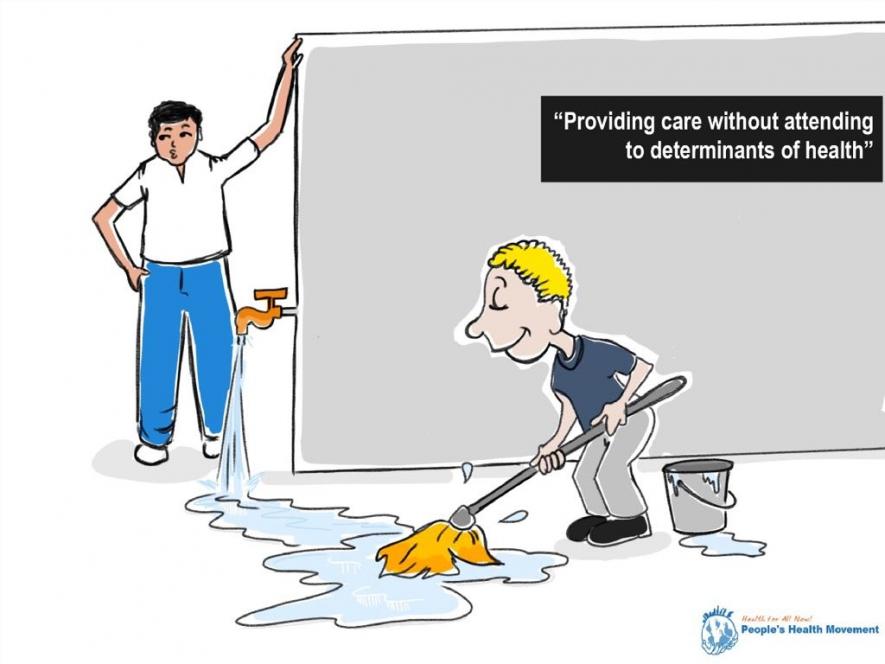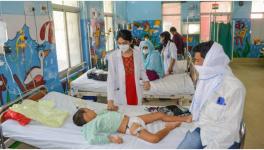World Health Assembly: LMICs Discuss the Need to Limit Industry Influence on National NCD Policies

The article below is part of the ‘WHO-Watch’ programme, which is an effort of the People’s Health Movement. The program works towards democratising global governance for health and involving young activists in following the governing body meetings of the World Health Organisation – the Executive Board meeting in January and the World Health Assembly in May – every year.
The 71st World Health Assembly in May 2018 discussed preparatory activities for the third high-level meeting of the United Nations General Assembly on the ‘Prevention and Control of Non-communicable Diseases (NCDs)’. Most countries’ delegates were eager to speak on NCDs, underlining that they make up a significant part of the global burden of disease. In this context, two streams of speakers could be noted: on the one hand, low and middle income countries (LMIC), such as Bolivia and Dominican Republic, talked about the importance of limiting industry influence on national NCD policies that try to improve health by taxing levels of sugar, tobacco, etc. On the other hand, high-income countries (HIC) like Canada, USA and parts of the EU focussed more on the possibilities that cooperation with the industry could bring. Notably, following a previous intervention during the meeting of WHO’s Executive Board in 2015, the Italian delegation said that all fiscal measures targeting food industry should be “scientific and evidence-based in order not to become harmful”.
Another interesting difference between LMICs’ and HICs’ focus could be noted when it came to the approach needed in improving NCD-related activities. For example, Finland noted that countries should make it possible for people to make "easy healthy choices". A similar, “healthy lifestyle” approach to combating NCDs could be seen in the statements of other countries as well, making it clear that they considered the high incidence of NCDs more as a result of personal choice, than a structurally produced health problem. A different approach was evident in the addresses by countries of the African and parts of the Latin American region, which focused more on the importance of strengthening the health care systems for providing support to people with NCDs, as well as raising health literacy levels.
Such a difference in approach reflects already existing inequalities between LMICs and HICs when it comes to tackling the burden of NCDs. While high-income countries have made progress in prevention of the NCDs, LMICs find themselves in a completely different position due to a general weakness of their health systems. In order to widen the progress made in prevention of NCDs to these countries, it is necessary to find ways of strengthening their healthcare systems not only through local and national action, but also through efforts on a global scale. Nominally,WHO finds itself in a good position to support LMICs’ health systems through capacity-building in policy-making and implementation of related programmes. In addition to that, WHO could (in theory) promote norms and policies, which would reduce the exposure to factors causing high incidence of NCDs, and limit cooperation with actors who have a personal interest in companies profiting from the presence of such elements.
Unfortunately, the organisation’s budget for NCDs, as PHM warned in its statement during WHA71, remains too low to really implement these possibilities. This is due to a number of factors, among which the interlinking of corporate interests with those of some of the countries and blocks of countries is one of the most important. The limitations to which WHO’s NCD funds are exposed, show that HICs are not ready to stand up against big companies in order to support the efforts of LMICs invested in the fight against NCDs.
This unwillingness goes beyond of what has been discussed at the WHA71, since HICs such as USA, have continued to support the tobacco and food industry in the field of trade policy – a support that has additionally undermined both WHO’s and local efforts to limit the exposure to health hazards caused by those industries. On the other hand, the success of several HICs in lowering NCD incidence is interlinked, among other things, to the fact that on national level, they have been prone to implement regulations that limit the intake of sugar and tobacco. As HICs insist on impeding the development of similar regulations on the level of global governance, their hypocrisy continues to reflect negatively on health outcomes in LMICs, increasing health inequities between countries and ignoring their own responsibility to confront the industry's interest in maintaining the current state of affairs.
The above article is compiled with contributions from; Linda Markova (UK), Kriti Shukla (India), Natasha Matthews (UK), Simrin Kafle (Nepal), Dan Owalla (Kenya), Emmanuel Tangumonkem (Cameroon), Alba Lop Girones (Spain), Matheus Falcao (Brazil), Sophie Gepp (Germany/UK), Sherif Olanrewaju (Nigeria), Andrew Harmer (UK) and Ana Vračar (Croatia).
Get the latest reports & analysis with people's perspective on Protests, movements & deep analytical videos, discussions of the current affairs in your Telegram app. Subscribe to NewsClick's Telegram channel & get Real-Time updates on stories, as they get published on our website.
























